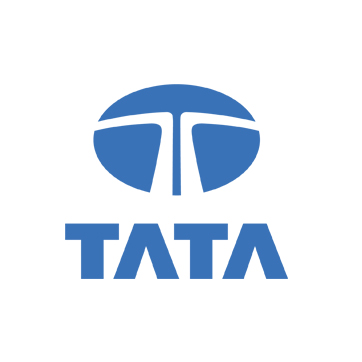Overview
The Contract Labour (Regulation & Abolition) Act, 1970, commonly known as CLRA, is a crucial legislation in India that governs the employment of contract labour. The Act aims to regulate the employment of contract workers and ensure their welfare while working in various industries and establishments. CLRA Registration is mandatory for principal employers and contractors who employ 20 or more contract workers on any day of the preceding 12 months. This registration ensures that businesses adhere to the legal requirements for the employment of contract labour, promoting fair treatment, safety, and proper working conditions. Legal Corner assists businesses in obtaining CLRA Registration, guiding them through the complex regulatory process to ensure full compliance with the law.
Eligibility
- Principal Employers:
Any organization or individual (principal employer) that employs 20 or more contract workers on any day of the preceding 12 months is required to obtain CLRA Registration. This includes businesses across various sectors, such as manufacturing, construction, and services. - Contractors:
Contractors who employ 20 or more workers on behalf of a principal employer must also secure CLRA Registration. This ensures that the contractor adheres to the legal obligations of providing fair wages, proper working conditions, and welfare facilities. - Compliance with Local Regulations:
Eligibility for CLRA Registration requires adherence to state-specific rules and regulations, which may vary slightly. Both principal employers and contractors must comply with these local laws to qualify for registration. - Maintenance of Worker Records:
Businesses must maintain accurate records of all contract workers, including employment contracts, wage details, and working hours. Proper record-keeping is essential for both eligibility and compliance under the CLRA Act. - Adherence to Labour Welfare Norms:
To be eligible for CLRA Registration, businesses must ensure that they provide contract workers with basic welfare facilities, such as restrooms, drinking water, and canteens, as mandated by the Act.
Benefits
- Legal Compliance:
Obtaining CLRA Registration ensures that your business operates within the legal framework for employing contract labour, avoiding penalties, fines, and potential legal disputes with workers or labour authorities. - Protection of Workers’ Rights:
CLRA Registration mandates adherence to fair labour practices, including timely payment of wages, safe working conditions, and access to welfare facilities, ensuring the protection and well-being of contract workers. - Enhanced Reputation and Trust:
Compliance with the CLRA Act enhances your business’s reputation, demonstrating a commitment to ethical employment practices and worker welfare. This can lead to improved relations with employees, clients, and the community. - Avoidance of Legal Liabilities:
By securing CLRA Registration, businesses can avoid legal liabilities associated with non-compliance, such as fines, litigation, or work stoppages due to disputes with contract workers or labour authorities. - Streamlined Operations:
Adhering to the CLRA Act ensures that your operations run smoothly without interruptions caused by labour disputes or regulatory non-compliance, allowing you to focus on your core business activities.
Procedure
- Initial Consultation and Eligibility Check:
Begin with a consultation to assess your eligibility for CLRA Registration based on the number of contract workers employed and the nature of your business. This step helps identify any gaps that need to be addressed before applying. - Document Preparation:
Prepare and gather all required documents, including the list of contract workers, employment contracts, wage records, and proof of compliance with welfare norms. Accurate documentation is crucial for a smooth registration process. - Application Submission:
Submit the CLRA Registration application to the relevant labour authorities, along with the required documents. The application must include details about the number of workers, the nature of work, and compliance with welfare provisions. - Inspection and Verification:
Labour authorities may conduct an inspection of your premises and records to verify compliance with the CLRA Act. This step ensures that your business adheres to the standards required for employing contract labour. - Issuance of CLRA Registration:
Upon successful verification and approval, the labour authorities will issue the CLRA Registration certificate, allowing your business to legally employ contract workers. The certificate is typically valid for a specified period and must be renewed as required. - Ongoing Compliance and Renewal:
Maintain continuous compliance with the CLRA Act by regularly updating worker records, adhering to wage and welfare norms, and renewing the registration as necessary. Ongoing compliance is essential to avoid legal issues and maintain smooth operations.
Why Legal Corner
- Holistic Compliance Solutions:
Beyond registration, Legal Corner offers a comprehensive range of compliance solutions, including advisory services, audit support, and ongoing compliance management, ensuring that your business remains compliant with all applicable labour laws. - Specialized Knowledge in Contract Labour Laws:
Legal Corner brings specialized expertise in the Contract Labour (Regulation & Abolition) Act, ensuring that your business adheres to all legal requirements. Our deep understanding of the nuances of contract labour laws positions us as a reliable partner for your compliance needs. - Streamlined Application Process:
We simplify the complex process of CLRA Registration, handling all the paperwork and formalities on your behalf. Our efficient approach minimizes delays and ensures that your registration is completed smoothly and promptly. - Dedicated Support Team:
Legal Corner provides a dedicated support team that is available to assist you at every step of the registration process. Our team is committed to offering personalized assistance, answering your queries, and guiding you through any challenges. - Proven Track Record of Success:
With a strong history of successful registrations across various industries, Legal Corner has established itself as a trusted partner for businesses seeking CLRA compliance. Our experience and expertise have helped numerous clients achieve smooth operations.












